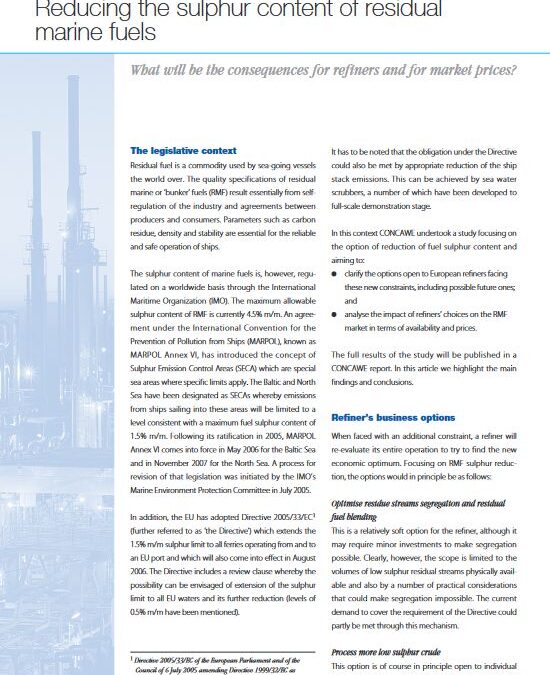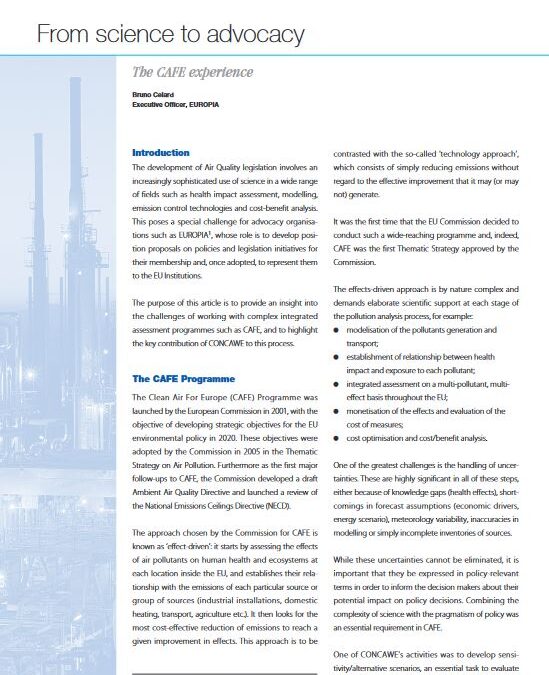

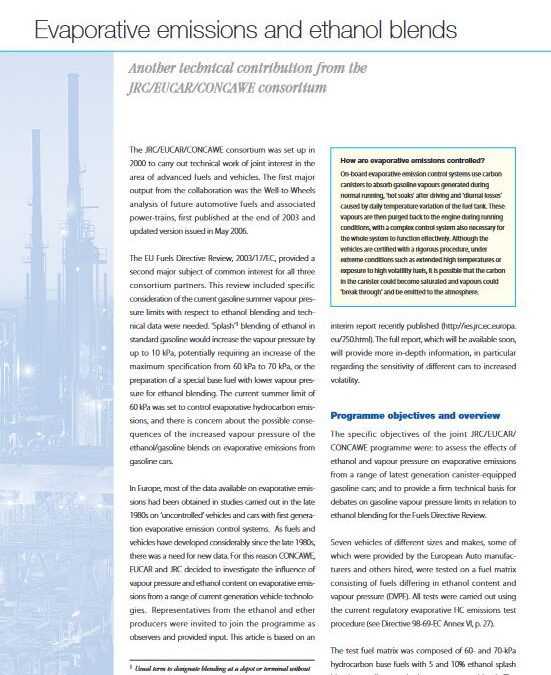
Evaporative emissions and ethanol blends
The JRC/EUCAR/CONCAWE consortium was set up in 2000 to carry out technical work of joint interest in the area of advanced fuels and vehicles. The first major output from the collaboration was the Well-to-Wheels analysis of future automotive fuels and...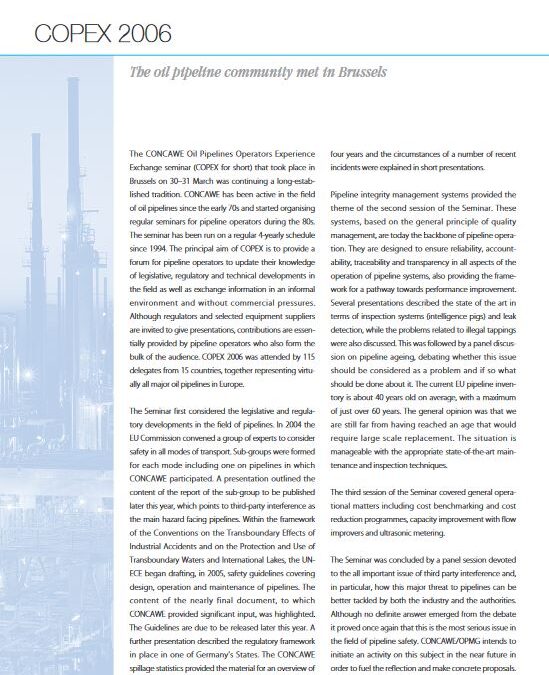
COPEX 2006
The CONCAWE Oil Pipelines Operators Experience Exchange seminar (COPEX for short) that took place in Brussels on 30–31 March was continuing a long-established tradition. CONCAWE has been active in the field of oil pipelines since the early 70s and started...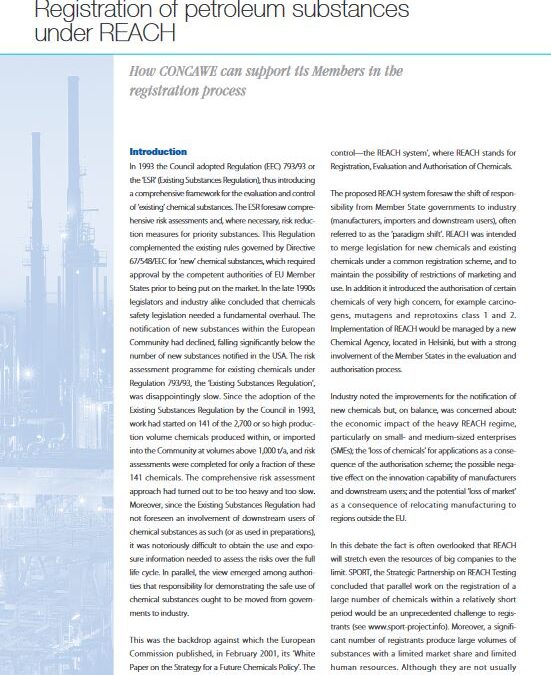
Registration of petroleum substances under REACH
In 1993 the Council adopted Regulation (EEC) 793/93 or the ‘ESR’ (Existing Substances Regulation), thus introducing a comprehensive framework for the evaluation and control of ‘existing’ chemical substances. The ESR foresaw comprehensive risk assessments and, where...